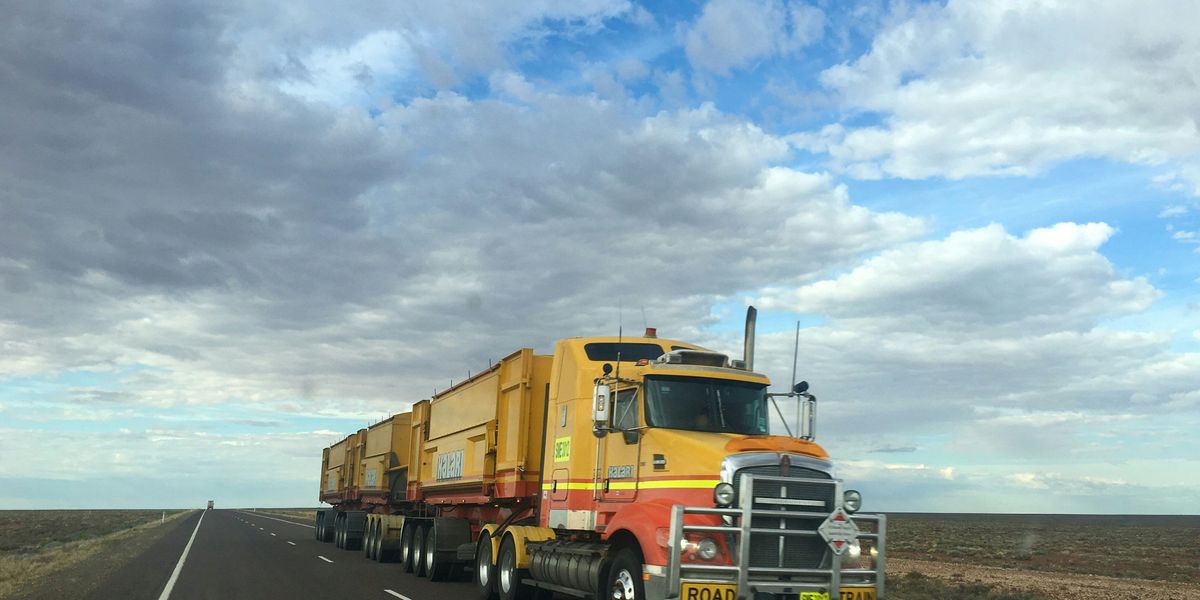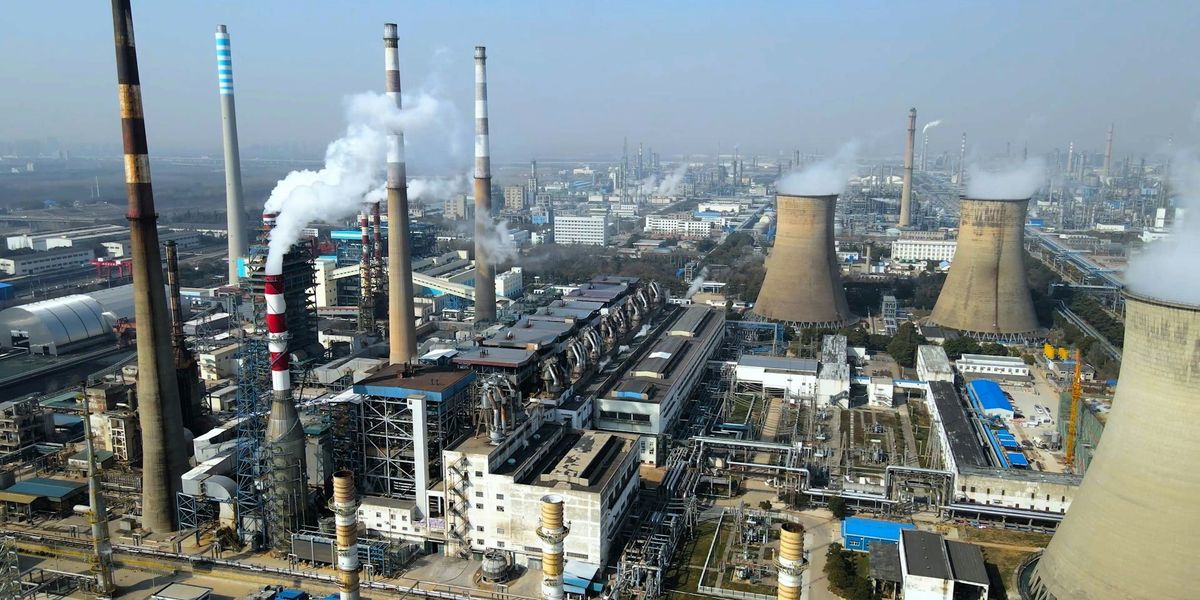united kingdom
Labour's plan to lead a green energy shift in Britain
Keir Starmer's new Labour government pledges to fast-track the green energy transition, aiming for zero-carbon electricity by 2030 despite significant challenges.
In short:
- Labour's win marks the end of 14 years of Conservative rule, with a strong focus on climate promises including zero-carbon electricity by 2030.
- Reducing reliance on gas and halting new North Sea oil licenses are major goals, but achieving these will be politically and logistically challenging.
- Broad political consensus on climate action in Britain is fracturing, with rising far-right opposition to net-zero targets.
Why this matters:
The Labour Party's vision for a greener future includes a comprehensive strategy to overhaul the UK's energy infrastructure. This means ramping up investments in renewable energy sources such as wind, solar, and tidal power, while simultaneously phasing out fossil fuels. The aim is not only to reduce the nation's carbon footprint but also to set a global example in combating climate change.
Future fossil fuel project impacts must be considered, UK court rules
The UK Supreme Court has ruled that the environmental impact of burning fossil fuels must be included in the planning process for new projects.
In short:
- The ruling mandates that planning authorities must consider the greenhouse gas emissions from burning extracted fossil fuels.
- The case, initiated by Sarah Finch, challenged Surrey county council's approval of an oil drilling project without assessing downstream emissions.
- This decision could influence other legal challenges against fossil fuel projects in the UK.
Key quote:
"The whole purpose of extracting fossil fuels is to make hydrocarbons available for combustion. It can therefore be said with virtual certainty that, once oil has been extracted from the ground, the carbon contained within it will sooner or later be released into the atmosphere as carbon dioxide and so will contribute to global warming."
— UK Supreme Court Judges
Why this matters:
This ruling ensures that the long-term climate impacts of fossil fuel projects are considered, potentially leading to stricter scrutiny and fewer approvals for new fossil fuel extraction projects. It represents a significant step in addressing climate change at the policy level.
Tory MPs fail to support climate issues since 2010, study shows
No Conservative MPs have voted positively on climate issues since 2010, according to a VoteClimate study.
In short:
- Only one sitting Conservative MP, a defector from the SNP, was rated positively on climate votes.
- Labour and Liberal Democrats dominate the list of MPs rated as very good on environmental policies.
- VoteClimate helps voters understand parties' climate policies and their impact under the UK’s electoral system.
Key quote:
“We want to be able to tell people which party will reduce carbon dioxide the most, based on their manifesto.”
— Ben Horton, founder of VoteClimate
Why this matters:
This voting trend raises concerns among environmental advocates and scientists, who warn that political inertia could stall progress on critical issues like carbon emissions, renewable energy adoption, and biodiversity protection.
Related EHN coverage:
Climate change drives severe winter flooding in the UK
A study confirms that climate change significantly worsened the UK's wettest winter, impacting farmers severely and reducing crop yields.
In short:
- The UK experienced its second wettest October to March period on record, with extreme rainfall linked to climate change.
- Farmers like Colin Chappell in Lincolnshire report drastically reduced crop yields due to flooded fields, threatening their livelihoods.
- Climate models show that such wet winters, previously rare, are now expected every 20 years due to global warming.
Key quote:
“Until the world reduces emissions to net zero, the climate will continue to warm, and rainfall in the UK and Ireland will continue to get heavier.”
— Sarah Kew, researcher at the Royal Netherlands Meteorological Institute
Why this matters:
The increased frequency of extreme weather events poses significant challenges for agriculture, impacting food production and farm viability. Farmers across the UK have reported substantial losses, with fields transformed into quagmires, making planting and harvesting nearly impossible. The reduced crop yields affect the agricultural economy, but also have broader implications for food security and prices, potentially hitting consumers' pockets.
Be sure to read EHN’s related coverage:
Activists call for politicians to sever ties with fossil fuel industries
Activists are urging British MPs to disassociate from the fossil fuel sector in a pivotal election year, pushing for cleaner political practices.
In short:
- A new campaign, "Stop Polluting Politics," launched on Westminster Bridge, demands MPs to reject fossil fuel influence and donations.
- The campaign criticizes the UK's Conservative Party for weakening climate commitments and continuing to accept substantial donations from polluters.
- Ajaya Haikerwal, a spokesperson for Climate Resistance, emphasizes the conflict of interest in politicians accepting money from oil and gas lobbyists, impacting policy decisions.
Key quote:
"It’s frankly outrageous that in 2024, oil and gas lobbyists can quite freely cosy up to politicians, hand them fat stacks of cash, and see a favourable change in policy."
— Ajaya Haikerwal, spokesperson for Climate Resistance
Why this matters:
Activists view politicians' associations with fossil fuel companies as contradictory to addressing climate change effectively. Such relationships can lead to policies and decisions that prioritize the interests of these corporations over those of the public and the environment. Activists argue that politicians should represent the needs and concerns of their constituents rather than catering to the profit motives of fossil fuel companies.
UK's impending summer water crisis due to infrastructure woes
Despite the UK's record rainfall, scientists warn of possible water shortages and hosepipe bans this summer if dry conditions prevail.
In short:
- The UK's lack of water storage and outdated infrastructure make it susceptible to "all or nothing" rain patterns, leading to potential summer shortages.
- A report predicts a significant water shortfall by 2050, exacerbated by climate change and increasing demand.
- Current strategies may include prioritizing public water supply and imposing bans on non-essential water use.
Key quote:
"We need to realise that our water infrastructure is creaking and required billions of pounds of investment."
— Hannah Cloke, professor at the University of Reading
Why this matters:
The UK faces more extreme weather patterns, including longer periods of drought and unpredictable rainfall. These changes challenge the traditional water management strategies and necessitate significant investment in infrastructure to capture, store, and distribute water more efficiently and resiliently. Without this investment, the UK risks not having enough water to meet its needs during prolonged dry spells, a scenario that could become increasingly common.
By 2050 many of the world's major cities will face surface water shortages, spurring regional conflict and competition for scarce resources.
UK's climate adaptation efforts deemed inadequate by experts
The UK's strategy for climate change adaptation significantly lacks the depth and urgency needed, as outlined by the Committee on Climate Change.
In short:
- The Climate Change Committee criticizes the UK's National Adaptation Programme for failing to adequately prepare for extreme weather events.
- Despite being an improvement, the current plan overlooks urgent actions and lacks integration with other priorities like net zero and nature restoration.
- The report calls for immediate action to enhance government programs and criticizes the lack of funding and coordination for climate adaptation efforts.
Key quote:
"The evidence of the damage from climate change has never been clearer, but the UK’s current approach to adaptation is not working."
— Julia King, chair of the CCC Adaptation Subcommittee
Why this matters:
With the climate crisis escalating, the UK's inadequate adaptation efforts could pose a risk not just to infrastructure but also to health, food security, and economic stability. Unlike climate mitigation, which aims to reduce or prevent the emission of greenhouse gases, adaptation strategies are focused on adjusting our ways of living to cope with the new realities brought about by climate change. This includes rising sea levels, more frequent and severe weather events, and shifting agricultural zones, among other impacts.
We must adapt to climate change. Can we do it in ways that solve other problems too?



















